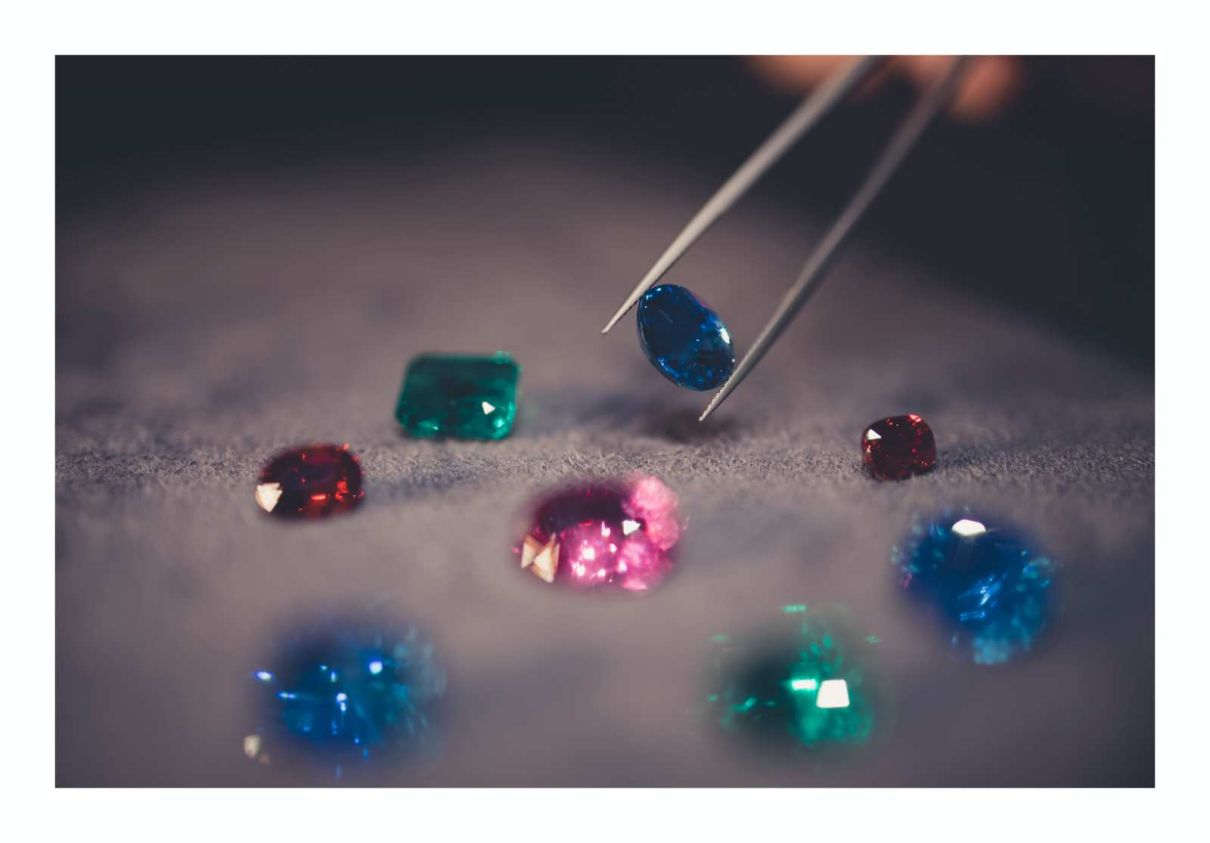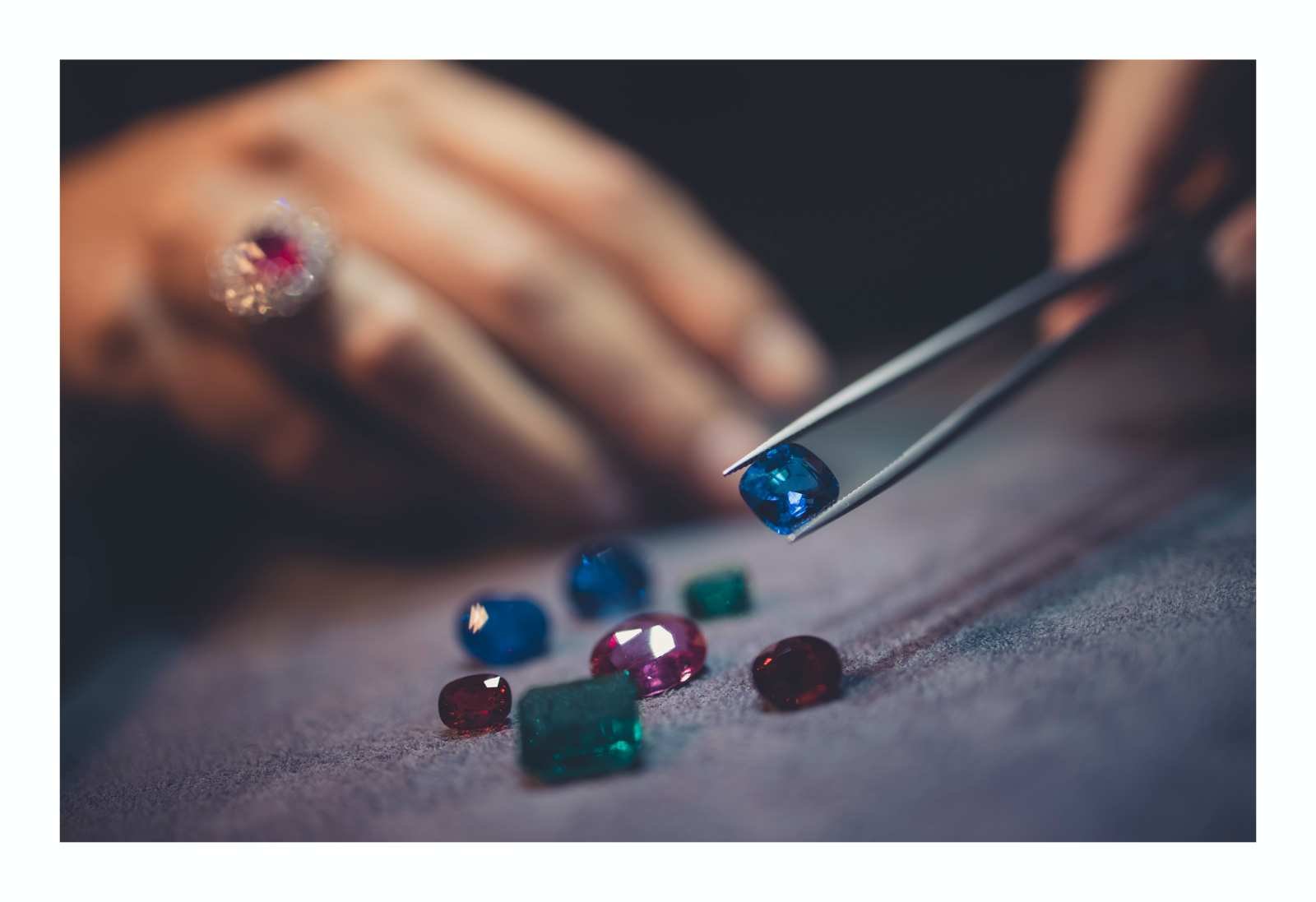The Future Of Ethical Gemstones

The negative aspects of gemstone mining has led to an increase in consumer awareness and demand for ethically-mined jewellery.

Throughout history, people have valued gemstones for a variety of reasons, from religious symbols, amulets, and lucky charms to purely just ornamental decorations. Believed by many to have healing powers, gemstones have even been traded and used for medicinal purposes. They have also become a popular investment option.
But all that glitters isn't gold and the gemstone industry is rife with those looking to make money at the expense of the earth.
We spoke to Dr Thomas Schröck, CEO and Founder of The Natural Gem, to find out more about the gemstone industry; specifically, sustainability within this sector, progress that is being made, and the future outlook of the industry.
First things first, are gemstones sustainable?
Gemstones have had a bad rap over the years due to the association with conflicts, magnified by Hollywood films, such as Blood Diamond which highlights the hazardous working environment for miners caused by large scale industrial mining. But the reporting on the negative aspects of gemstone mining has led to an increase in consumer awareness and demand for ethically mined jewellery, according to the Gemological Institute of America (GIA). As a result, more pressure is being put on the industry to step up and take action against unethical practices.
There has been a lot of progress made in this space, with businesses in this category making meaningful changes to help move the industry forward, from selecting mining partners that ensure sustainable mining processes but also sustainable working conditions for the workers. The Kimberley Process - a certification scheme established to remove conflict diamonds from the global supply chain - has become more widely known and recognised.
How would you describe ethical mining of gemstones?
Ethical mining of gemstones means adopting responsible practices at all stages of the supply chain, from the very first stage of extracting the gemstone, to the final stage when delivering it to its new owner.
This means that gemstones are extracted from the ground with minimal environmental damage by miners who are not exploited or suffering terrible working conditions and the profits are not used to fund war, terrorism or political corruption.
What standards need to be set for mining?
Research has found that consumers are willing to pay a premium on gemstones that are sustainably sourced, so there are no longer any excuses for businesses not to adopt responsible and sustainable practices.
The standards businesses involved in gemstone mining need to set, include: only working with conflict free regions, only working with mines that have sustainable mining processes that also replenishes any natural resources, and puts it back to its natural state, only working with mines that provide good, safe, and well-paid working conditions, and do not use child labour, and only working with world-renowned gemological certification bodies when verifying gemstones
Are gemstones more ethical than diamonds?
The diamond and gemstone industry have faced similar scrutiny over the years, that often relate to conflict diamonds from war zones and non sustainable mining processes.
The diamond industry mostly operates at scale, using heavy machinery, which in turn damages the natural ecosystem in addition to pollution.
Gemstones however, are mined without such large equipment and are mainly sourced by hand, which means that the impact on the environment is much smaller when mining gemstones.
How do gemstones affect the environment?
The effect of gemstones on the environment largely depends on the methods and practices used when mining, and the geological context that govern how easily the minerals can be separated from the ore material.
Without sustainable mining processes, gemstone extraction can result in land degradation, water pollution and affect wildlife and biodiversity.
How to pick an environmentally friendly gemstone?
Much like the businesses involved in gemstones, consumers also have a responsibility to help move the industry forward. Therefore, when buying a gemstone, we encourage people to ask about the origin of the gemstone and the practices and working conditions employed by the mine. Consumers have the power to change industries by putting pressure on the businesses involved. Therefore, asking questions and raising awareness is of vital importance.
What does sustainability mean for The Natural Gem?
Sustainability is extremely important for The Natural Gem. We only use manual mining processes and replenish resources to ensure minimal harm to the environment. We also only work with trusted partners that can demonstrate sustainable practices and working conditions.
While we are very proud of our existing processes and dedication to being sustainable, it is very important for us that we continue to work on our processes to identify any areas where we can improve.
We are currently ESG compliant and also continuously working to achieve all of the UN’s Global Sustainable Development Goals. There is currently no international consensus or standard in place specifically for the gemstone industry. This is why we take great pride in furthering new quality standards that are both ESG compliant and aligned with the UN’s Sustainable Development Goals.
Dr Thomas Schröck is CEO and Founder of The Natural Gem.








